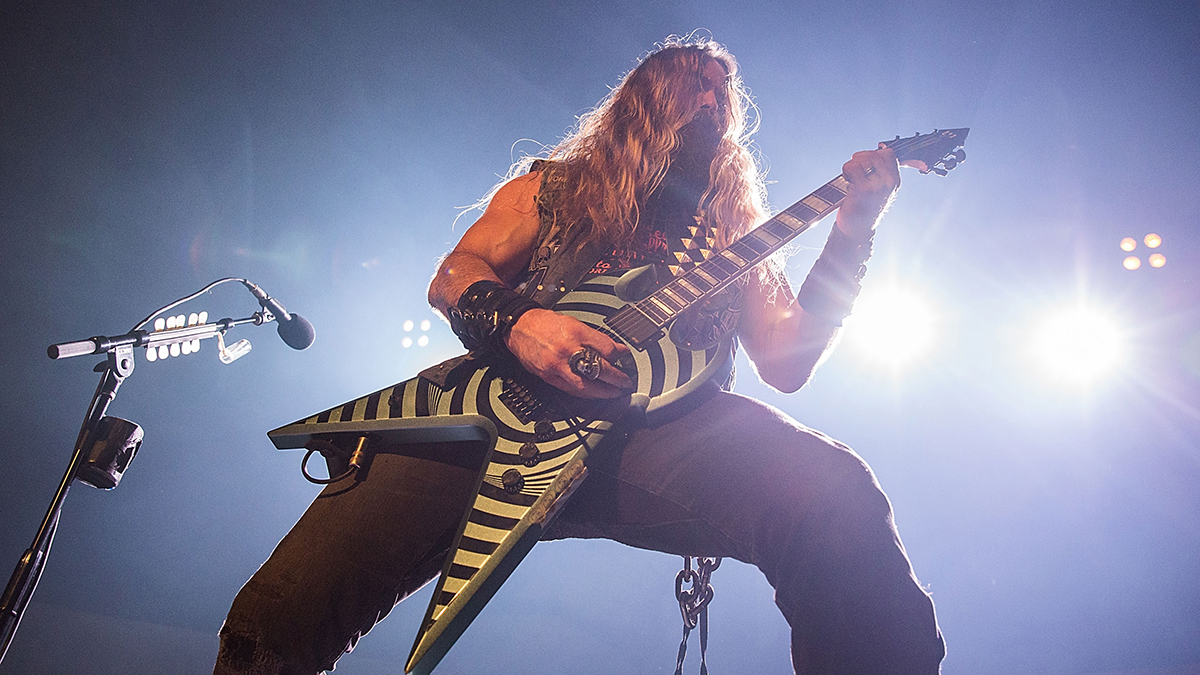“Music saves many of us – yet we often lose the people who gave us that music to the very thing their music saves us from”: The tragedy that led Sully Erna to create the Scars Foundation
The Godsmack leader’s first-ever song was about a friend who took his own life. He’s never recorded it, but he’s determined to share what he’s learned about the power of music and communication, with the aim of saving others
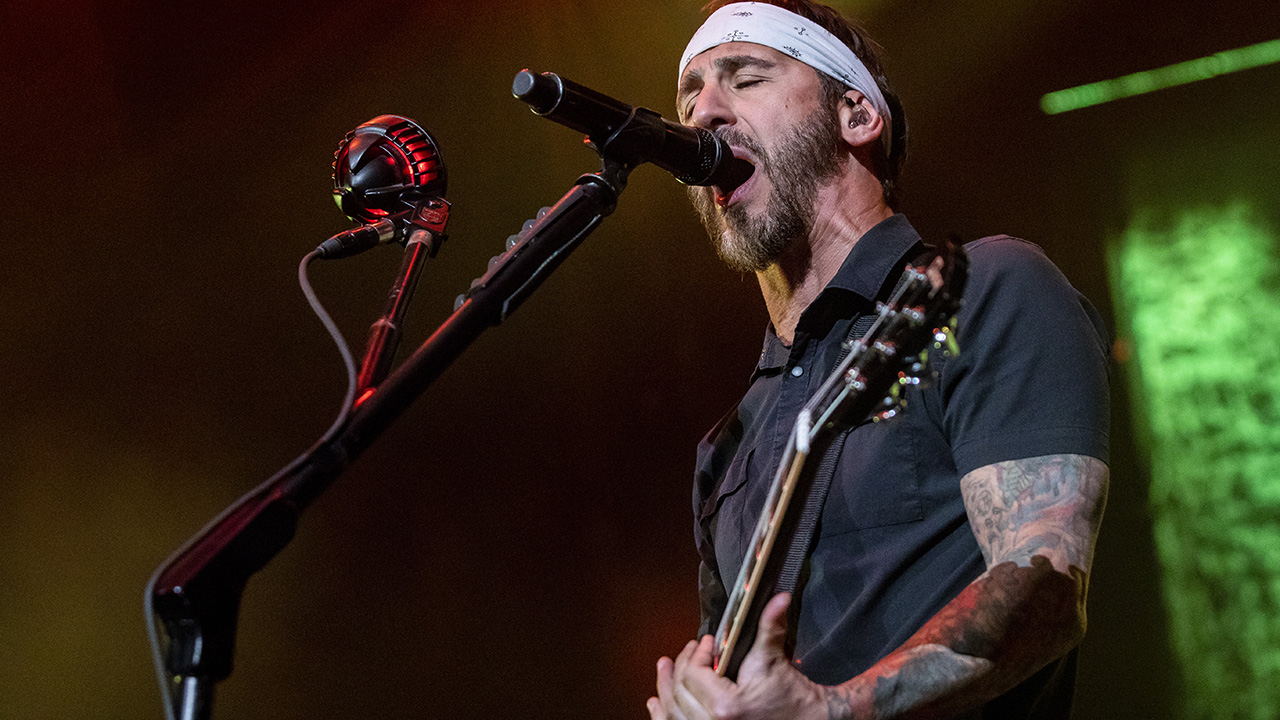
All the latest guitar news, interviews, lessons, reviews, deals and more, direct to your inbox!
You are now subscribed
Your newsletter sign-up was successful
This article is part of Guitar World's series of interviews and features with artists addressing and raising awareness around themes of mental health, particularly as they relate to musicians.
There’s a meme that periodically circulates on social media. The heading reads This Is What Depression Looks Like and in various configurations appear eight to 12 famous faces, all of them smiling and laughing.
When most of us look at it, we see celebrities. When Godsmack vocalist/guitarist Sully Erna looks, he sees beloved friends and colleagues like Chris Cornell and Chester Bennington, whose inner struggles led them to suicide, and he sees the hell of mental health challenges.
“We’re at war with mental health – it’s the toughest motherfucker you can find,” he says. “It’s the ultimate enemy. It’s fearless and shows no mercy. Sometimes it’s the most evil enemy we can have inside ourselves. We’re at war, and we’re trying to find weapons for battle.”
For Erna, who has spent a significant part of his life fighting his own demons, one of those weapons is the Scars Foundation. Launched in April 2019, inspired in part by Under Your Scars – the third single from Godsmack’s When Legends Rise – the nonprofit provides resources and education for individuals battling depression, anxiety, suicidal ideation, bullying, addiction, abuse and more.
Via social media, fundraising, interviews, events, music, and of course outreach through Godsmack’s tireless efforts, the Scars Foundation works to provide a space to remind those who are struggling that they are not alone.
The Scars Foundation also does a tremendous amount of work with Headstart Programs in rural Appalachia, and to date have worked with over 400 children ages 3-6 years. They also work with Tempo, part of Gibson Guitars’ Gibson Gives foundation.
All the latest guitar news, interviews, lessons, reviews, deals and more, direct to your inbox!
In his own words, Erna detailed the tragedy that inspired him to found the Scars Foundation, and how his own perspective on mental health has evolved over the years.
“From inception to now, our foundation has grown at a pretty good rate. We’re always looking to do better – we’re trying to touch people on a global level.
“We’ve made a lot of good headway with visibility because we've partnered with companies like Best Buy, and obviously by taking the nonprofit on tour and speaking about it in front of tens of thousands of people every night. Things like that have really helped the audience be more aware that we’re here and we’re on the radar.
“I discovered the healing power of music in was the late ’80s, when a friend of mine named Dave hung himself in the basement of his home after threatening to do it many times. I think when people hear it so much, they start thinking, ‘He's just venting.’ And then one day he actually does it.
“We realized then that he had been crying out for help and we didn’t know how to help him because we were so young ourselves, in our late teens or early 20s.
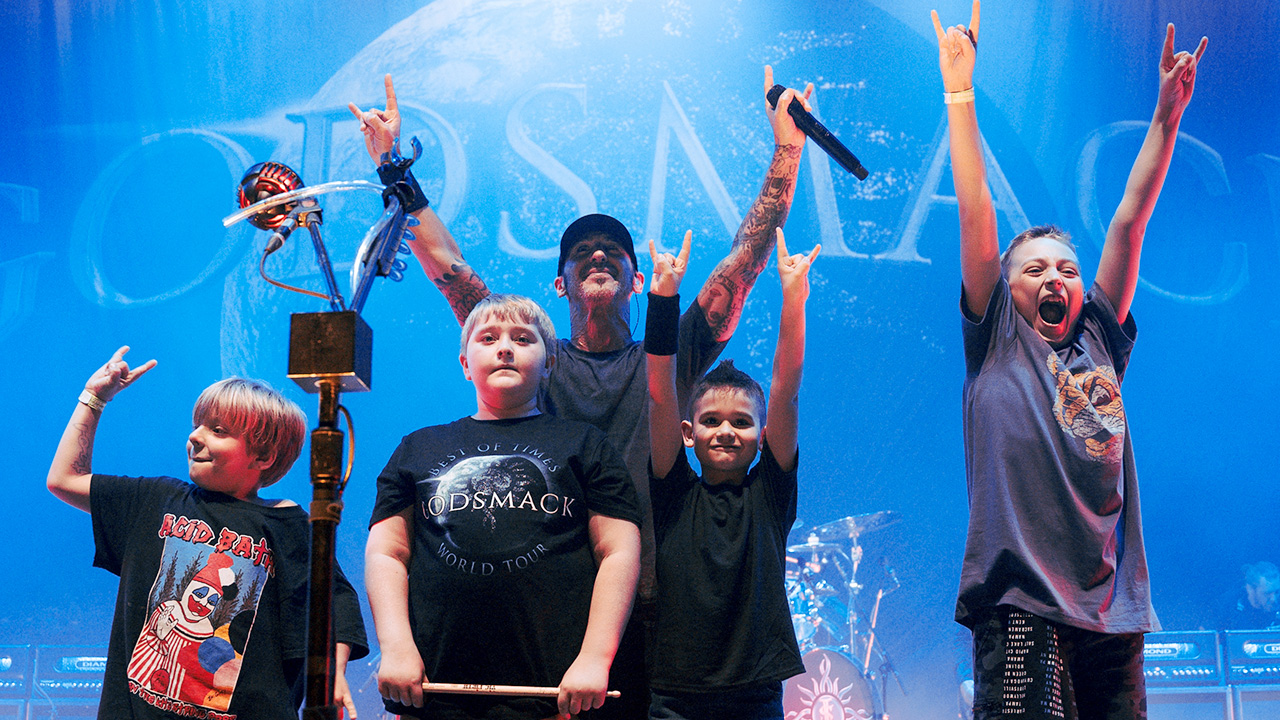
“I ended up writing a song. This was before I was a songwriter. I’d been a drummer my whole life, then I picked up the guitar, noodled around, and wrote a piece of music that I liked.
“I was sitting on the floor in my girlfriend’s bedroom, writing down how I thought Dave must have felt to be able to actually do the action. I was trying to think how severe the pain was for him to actually do that. I was trying to get in his head, in his isolation.
You become unmotivated, scared, embarrassed… you don’t have the information. But as you go through it and you start to get help, that’s a huge part of it
“I wrote a song called Another Day that I still haven’t recorded. It’s a pretty heavy piece. I found myself breaking down and crying, feeling the pain that he must have felt – or at least trying to understand it.
“In that moment, music gave me a sense of relief. It released the pain from my body and made me feel a little bit better. That’s when I realized what music is about. I understood why all these artists write about their life situations and events that affect them on an emotional level.
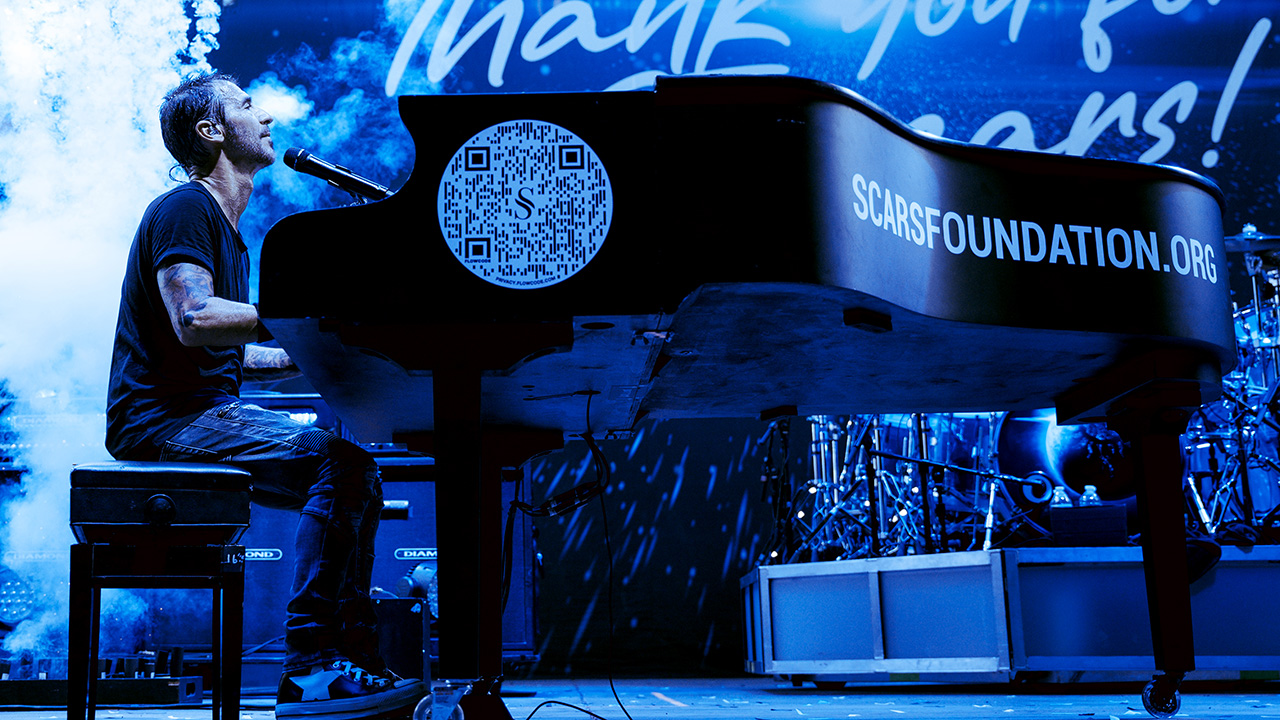
“From that point forward, whenever I wrote, I always wrote about something that impacted my life emotionally, whether it was good or bad. The relief it gives you is therapeutic.
“When you’re young you’re fearless – you don’t think about that stuff. You haven’t been affected by it, so you don’t know what it feels like. One day it hits you and you’re very much in the dark, trying to understand why you feel this way.
I had to tell people, ‘Look, I’m not feeling good. I don’t know what’s going on, but I’m worried.’ That leads to tools that can help
“You become unmotivated, scared, embarrassed. All these different things play into it and you don’t have the information. But as you go through it and you start to learn what anxiety is, what depression is, and you start to get help, that’s a huge part of it.
“You have to voice it, which is one of the biggest things we put in the Scars Foundation when we use the hashtag #showyourscars. We’re telling people to voice these inner pains, because depression is the silent killer.
“We don’t know that people are depressed at times. I’ve lost multiple people over the years to this kind of thing, whether it was addiction or depression or whatever.
“So the first thing, as I started experiencing this stuff, was realizing I had to talk about it. I had to tell people, ‘Look, I’m not feeling good. I don’t know what’s going on, but I’m worried.’ That leads to information, which leads to tools that can help.
“I still struggle at times – but I have more wisdom, a bigger toolbox to dig into when these moments happen. My awareness and education have been a lifetime of work, but the alternative to that is sitting in the dark and feeling pain, and that’s certainly no way to live.
“So I choose to take each day as it comes, and if it’s not a good day, I process it with the tools I have and try to get to the next day.
It’s difficult to deal with the fact that that music saves many of us – yet we often lose the people who gave us that music to the very thing their music saves us from
“Sometimes you wake up and those next days are great. Little by little, the bad days kind of decrease and the better days become more, rather than having it go the other way.
“It’s difficult to deal with the fact that that music saves many of us – yet we often lose the people who gave us that music to the very thing their music saves us from. It just doesn’t make any sense why they had to go. They were such good people. They didn’t hurt anyone, but they were hurting. They were struggling.
“There are people who come into our lives and we let them help us when they identify that we’re struggling. We vent, we use them as a crutch – but if they’re not doing the same thing, if they’re not allowing people to help them, then they’re setting themselves up for more pain and falling deeper into that hole.
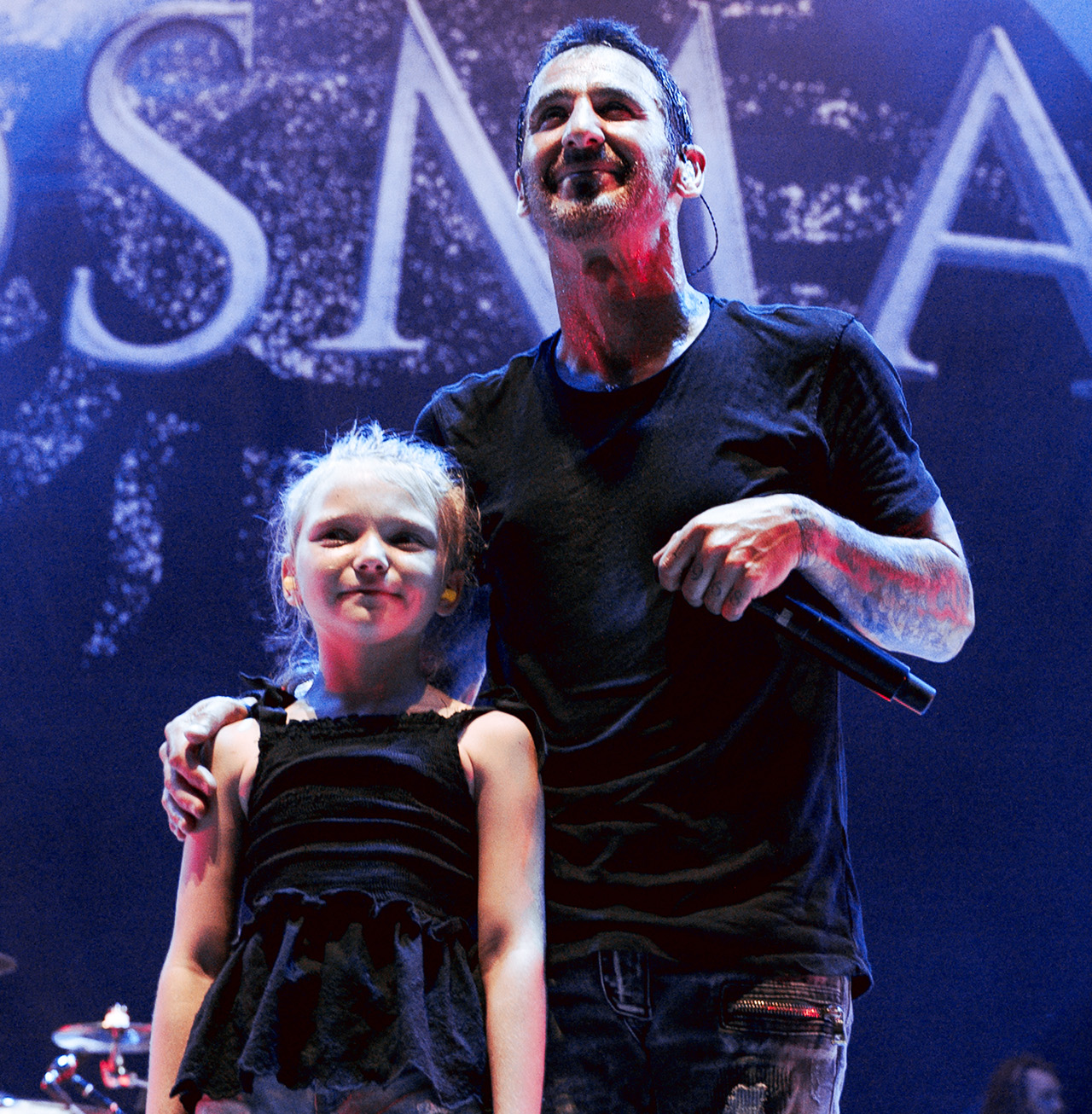
“‘Mental health awareness’ is called that because we need to be able to identify people who struggle. Depression is a stealth illness because there are no physical signs. With other illnesses, we see it. It’s happening, it’s visible. Depression is not that.
“Depression is someone coming into your house, smiling, laughing, eating and drinking with you, and then going home, sitting in a dark bedroom, crying and contemplating suicide.
We share our experiences, and hopefully some of these things will connect with other people and give them the strength to come forward
“We can’t see that if they look fine; if, when we’re talking to them, they’re giving us everything we want to hear and telling us they’re fine. Keeping it inside means it doesn’t go anywhere other than circulating through your body until you self-destruct.
“That’s why the Scars Foundation is trying to educate people and give them a place where it’s safe to talk about anything they want – because the people who are listening are also struggling. Once we can get them to open up and tell their stories, it will inspire people and change how others think.
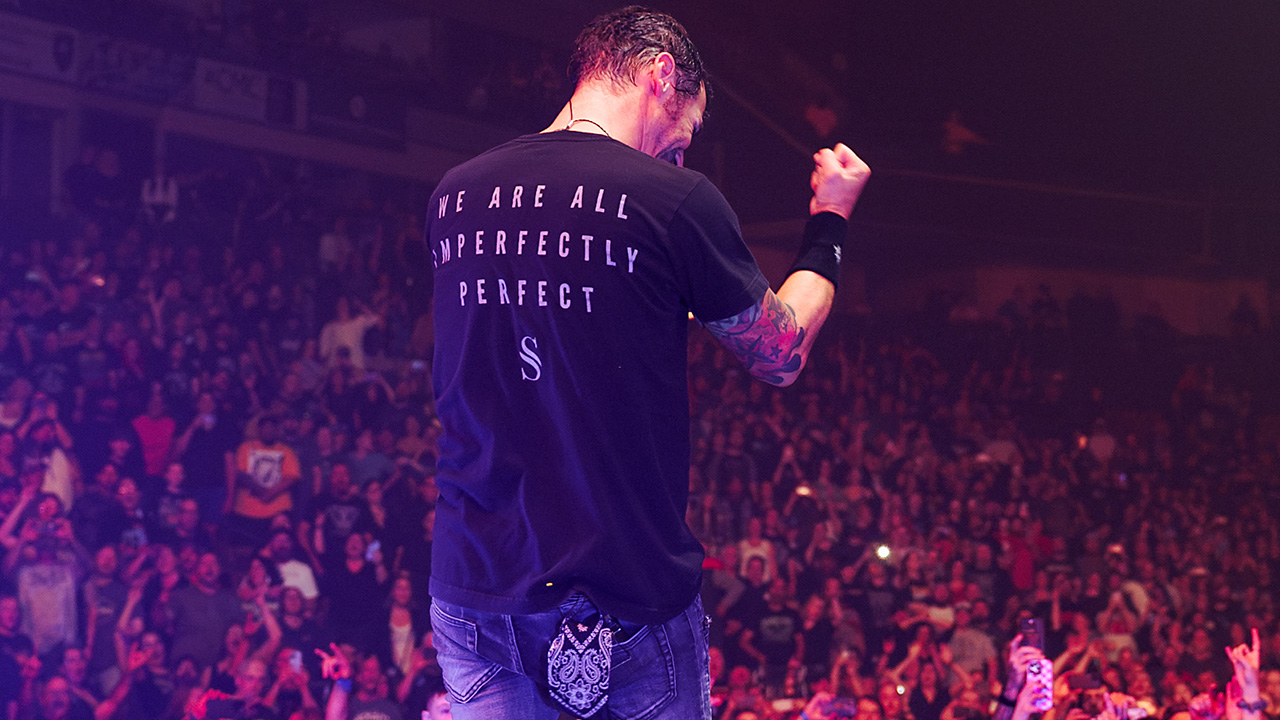
“Once you release that pain from your body, that’s when the work begins. Once you get over that initial fear of talking about it, it feels a little bit better. And then the second time isn’t as hard, the third time’s a little easier, and it gets better and better.
“That’s what we do: we share our experiences, and hopefully some of these things will connect with other people and give them the strength to come forward.”
Mental health resources
Alison Richter is a seasoned journalist who interviews musicians, producers, engineers, and other industry professionals, and covers mental health issues for GuitarWorld.com. Writing credits include a wide range of publications, including GuitarWorld.com, MusicRadar.com, Bass Player, TNAG Connoisseur, Reverb, Music Industry News, Acoustic, Drummer, Guitar.com, Gearphoria, She Shreds, Guitar Girl, and Collectible Guitar.
